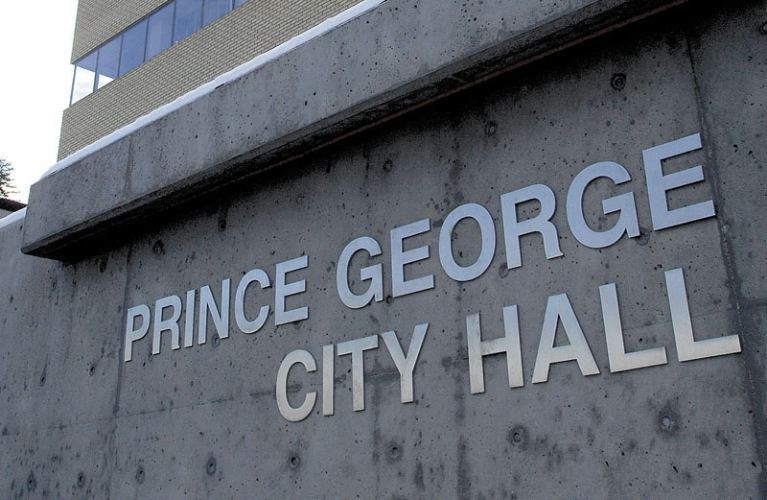The city is moving ahead on figuring out how to get rid of what are currently dual-purpose cycling lanes.
During Monday night's meeting, city council supported
Coun. Jillian Merrick's proposal to have staff investigate ways to ban vehicles from parking in marked bike lanes.
It's an issue Merrick said she's been raising with the city for nearly as long as she's lived in Prince George. A former president of the Prince George Cycling Club, Merrick campaigned for her city council seat with a platform heavy on bringing aspects of the city's active transportation plan into practice.
Approved in 2011, the plan recommends removing on-street parking where cycling lanes are necessary.
"The removal of parking conflicts on arterial roads also improves traffic flow and safety on main routes," the plan says.
"It's an easy one to do - the fact of the matter is it doesn't really cost any money to approve or change a bylaw," said Merrick, noting the idea is to open up the bike lanes that already exist.
Earlier this summer, the city also received a provincial grant of $250,000 to upgrade lane markings and signage.
Allowing two different uses in one space - specifically parked vehicles and moving bicycles - doesn't work for obvious reasons, said Coun. Terri McConnachie.
"In my world, an inconvenience of the majority in no way trumps the physical risks, safety, necessity and enjoyment of the minority," McConnachie said.
The active transportation plan has sat stagnant since it was approved, said Coun. Frank Everitt. And while he said he doesn't think Prince George is close to some place like Vancouver with its myriad of bikes "but it's important that we recognize we do need some bicycle lanes and appropriate discussion and details need to be put in place before we get to that position where we fully adopt that and put it in place."
City manager Kathleen Soltis said staff would start by looking at the active transportation plan and see what's already identified, then identify which parts of the city's 36-kilometre cycling network would be the quickest to fix. From there, they could narrow down the more problematic areas of the city, she said.
There are some "pinch points" throughout the cycling network where removing vehicle parking is going to be tricky, said Mayor Lyn Hall.
These include along Ospika Boulevard in front of the soccer fields as well as Lac de Bois elementary school as well as on Domano Boulevard in front of the ball fields.
"There's no question that (with) this issue, we're in no man's land. We have bike lanes, we have them clearly marked, we have bicycles painted on those bike lanes but nobody knows what to do with them," Hall said. "So I think it's absolutely worthy of a discussion."



